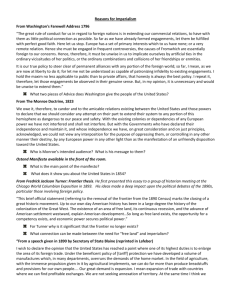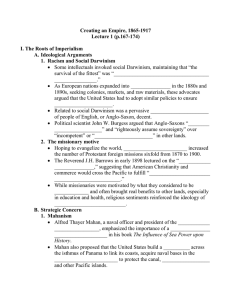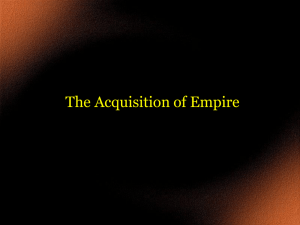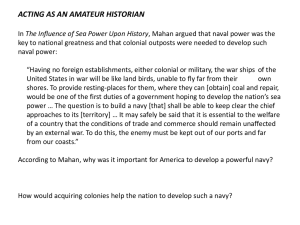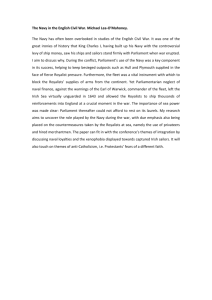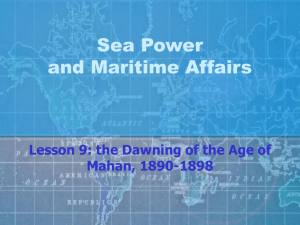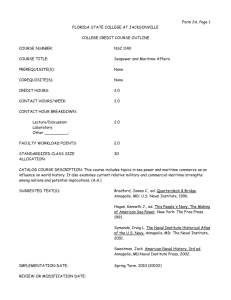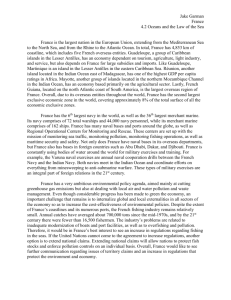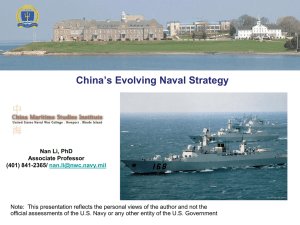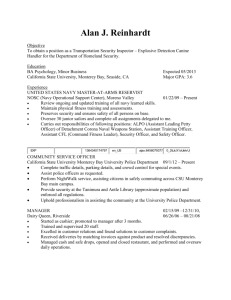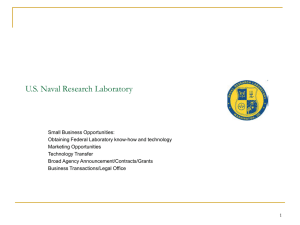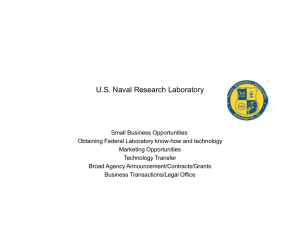Mahan: The United States Looking Outwards, 1890 - Naval Power
advertisement
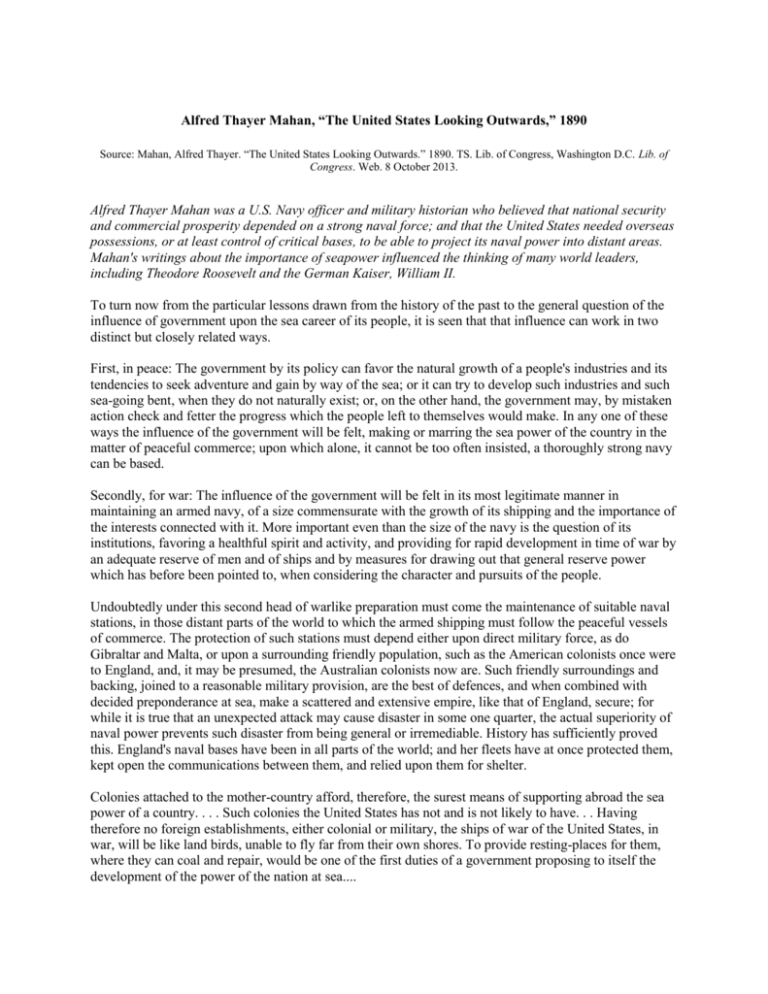
Alfred Thayer Mahan, “The United States Looking Outwards,” 1890 Source: Mahan, Alfred Thayer. “The United States Looking Outwards.” 1890. TS. Lib. of Congress, Washington D.C. Lib. of Congress. Web. 8 October 2013. Alfred Thayer Mahan was a U.S. Navy officer and military historian who believed that national security and commercial prosperity depended on a strong naval force; and that the United States needed overseas possessions, or at least control of critical bases, to be able to project its naval power into distant areas. Mahan's writings about the importance of seapower influenced the thinking of many world leaders, including Theodore Roosevelt and the German Kaiser, William II. To turn now from the particular lessons drawn from the history of the past to the general question of the influence of government upon the sea career of its people, it is seen that that influence can work in two distinct but closely related ways. First, in peace: The government by its policy can favor the natural growth of a people's industries and its tendencies to seek adventure and gain by way of the sea; or it can try to develop such industries and such sea-going bent, when they do not naturally exist; or, on the other hand, the government may, by mistaken action check and fetter the progress which the people left to themselves would make. In any one of these ways the influence of the government will be felt, making or marring the sea power of the country in the matter of peaceful commerce; upon which alone, it cannot be too often insisted, a thoroughly strong navy can be based. Secondly, for war: The influence of the government will be felt in its most legitimate manner in maintaining an armed navy, of a size commensurate with the growth of its shipping and the importance of the interests connected with it. More important even than the size of the navy is the question of its institutions, favoring a healthful spirit and activity, and providing for rapid development in time of war by an adequate reserve of men and of ships and by measures for drawing out that general reserve power which has before been pointed to, when considering the character and pursuits of the people. Undoubtedly under this second head of warlike preparation must come the maintenance of suitable naval stations, in those distant parts of the world to which the armed shipping must follow the peaceful vessels of commerce. The protection of such stations must depend either upon direct military force, as do Gibraltar and Malta, or upon a surrounding friendly population, such as the American colonists once were to England, and, it may be presumed, the Australian colonists now are. Such friendly surroundings and backing, joined to a reasonable military provision, are the best of defences, and when combined with decided preponderance at sea, make a scattered and extensive empire, like that of England, secure; for while it is true that an unexpected attack may cause disaster in some one quarter, the actual superiority of naval power prevents such disaster from being general or irremediable. History has sufficiently proved this. England's naval bases have been in all parts of the world; and her fleets have at once protected them, kept open the communications between them, and relied upon them for shelter. Colonies attached to the mother-country afford, therefore, the surest means of supporting abroad the sea power of a country. . . . Such colonies the United States has not and is not likely to have. . . Having therefore no foreign establishments, either colonial or military, the ships of war of the United States, in war, will be like land birds, unable to fly far from their own shores. To provide resting-places for them, where they can coal and repair, would be one of the first duties of a government proposing to itself the development of the power of the nation at sea.... The question is eminently one in which the influence of the government should make itself felt, to build up for the nation a navy which, if not capable of reaching distant countries, shall at least be able to keep clear the chief approaches to its own. The eyes of the country have for a quarter of a century been turned from the sea; the results of such a policy and of its opposite will be shown in the instance of France and of England. Without asserting a narrow parallelism between the case of the United States and either of these, it may safely be said that it is essential to the welfare of the whole country that the conditions of trade and commerce should remain, as far as possible, unaffected by an external war. In order to do this, the enemy must be kept not only out of our ports, but far away from our coasts. The question is eminently one in which the influence of the government should make itself felt, to build up for the nation a navy which, if not capable of reaching distant countries, shall at least be able to keep clear the chief approaches to its own. The eyes of the country have for a quarter of a century been turned from the sea; the results of such a policy and of its opposite will be shown in the instance of France and of England. Without asserting a narrow parallelism between the case of the United States and either of these, it may safely be said that it is essential to the welfare of the whole country that the conditions of trade and commerce should remain, as far as possible, unaffected by an external war. In order to do this, the enemy must be kept not only out of our ports, but far away from our coasts. Arguments Made for Imperialism Arguments Made against Imperialism
